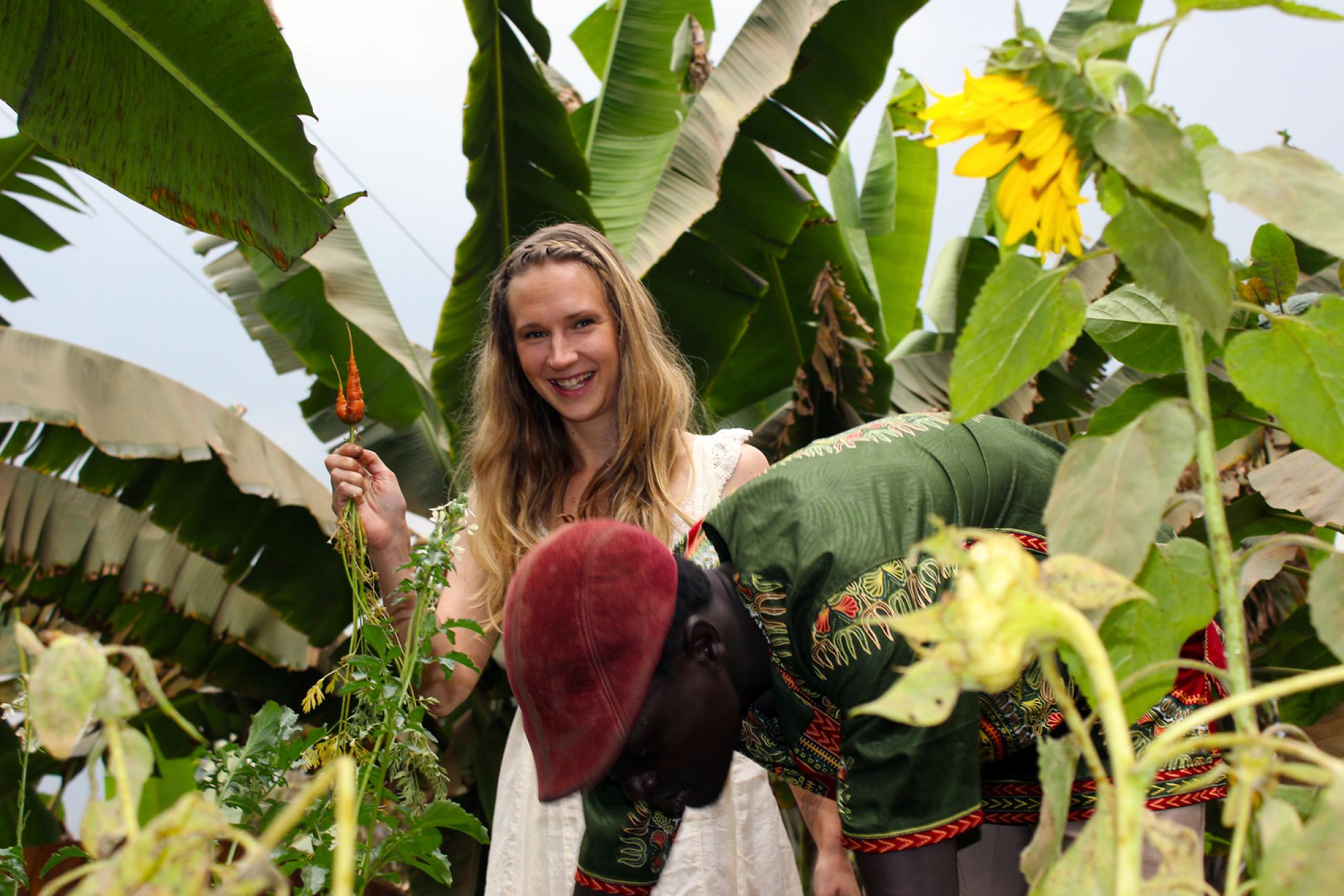I came to Uganda on somewhat of a whim. When I arrived, I never could have dreamed that I’d stay for so long—nearly two years—and that I would gradually transition from being a “traveller” into imagining myself living here, getting married and raising a family.
In late 2012, I had just quit my job with a non-profit organization in Edmonton, Alberta and I was hungry to get out from behind the desk and chuck myself into a new environment for learning about community development and sustainable agriculture.
I told myself three months in Sub-Saharan Africa was a sort of transition time between being jobless in Canada and applying for graduate school in Norway. I had tucked away some personal savings, made a promising connection with a genuine organization in southwestern Uganda and was beyond curious to learn about African culture, politics and the intricacies of community development work on the continent that so many Westerners forge (what I’ve now learned) inaccurate perspectives about.
I came and liked what I saw and loved what I learned from the local partner organization, the Kigezi Healthcare Foundation (KIHEFO), about their bottom-up approach to working with existing networks of rural women, men, farmers and schools to plan for development. I saw that KIHEFO didn’t thrust their own “expertise” on how rural Ugandans should “develop” and I liked that.
So I extended my flight and stayed another three months. And then another three months beyond that. With my savings shrinking, I knew I needed to find some kind of paid contract work to cover my living expenses. “You can’t be a volunteer forever,” my mother’s words rang in my ears.
A month later, a job, seemingly, fell from the sky with Child Family Health International (CFHI), a San Francisco-based organization that was hopeful to establish a global education learning site at KIHEFO’s medical clinics in Uganda. CFHI connects international health science students with healthcare organizations around the world. I liked their approach that foreign students weren’t coming “to help” but rather “to learn” from KIHEFO’s healthcare professionals.
I signed on eagerly and suddenly was tasked with building the first CFHI learning program in Uganda and East Africa, as well. The opportunity couldn’t have come at a better time. It’s allowed me to shift from volunteering to truly living in Uganda.
Another significant thing happened after arriving in Uganda last year. I met the love of my life—a Ugandan man with whom I quickly developed a friendship over our mutual passion for gardening and growing food. Apart from work, we spent countless hours cultivating food, fruits and raising rabbits together. Everything about our relationship was natural and it moved fluidly from friendship to partnership.
While I certainly didn’t come to Uganda looking for love, it found me sharply and I trusted in my gut that it would be the biggest regret of my life if (out of fear of changing my life so drastically) if I turned my back on him.
There has been nothing stereotypically romantic or “exotic” about our relationship. Obviously, coming from two very different cultures and ways of life, it has proved to be very challenging at times. But at the heart of our differences, there is the willingness to understand one another and the loyalty of really loving and accepting one another. I have never enjoyed my life more since the day we met.
So I stayed.
Often when I meet other Western travellers, volunteers or backpackers in Uganda who’ve come for short stints, I struggle to justify why I’ve decided to stay. Of course, I’m in no way obligated to do so. But I know my story, at first, anyways; often makes other Westerners raise their eyebrows in concern. They always have a lot of questions for me:
How long are you going to stay? Are you actually going to raise a family here? Isn’t it dangerous? Aren’t you worried about quality of healthcare? Don’t you get lonely?
And, of course, I’ve thought about all of these realities—and many more. Yes, at times, I worry. Yes, I get lonely. Yes, I miss my friends and family in Canada, along with some of the “luxuries” that make living easier in the West (namely: consistent electricity and water).
I do get the itch for some of my favourite foods and forms of entertainment in Canada, now and then. And I often get tired of not fitting in with the local culture. Even 18 months here, I am still an outsider and I feel that, in some respects, I will always be one.
But I’ve realized that Westerner’s stereotypes and fear about “Africa” in general (a continent, not a country) is often misplaced and misinformed by what they hear in the media and more pertinently, what they don’t hear. Africa isn’t only poverty, Ebola, war, famine and hardship.
On the contrary, Uganda has been a very healthy environment in which to live my life. The slower pace of life and greater emphasis on enjoying time with family and friends has been an amazing (therapeutic) shift from the go-go-go normality of the West. The fact that I can grow my own food, 12 months of the year, means I’m eating healthy, organic vegetables and fruits on a daily basis. And working outside a traditional 9 to 5 job gave me new time to reflect, which translated into the creative project of my life: writing my first book!
It’s been fascinating to see how Ugandans are innovating, on the move and developing themselves in unique, creative ways. I feel lucky to witness how Ugandans are challenging who and what the West thinks they are. My experiences here, too, are challenging perspectives that it’s an unfit place to live a happy, healthy and productive life.
Of course, Canada will always be my home, too, and I will always go back to visit, and one day, potentially to work and raise a family. My partner and I want our future children to know and love and feel connected to both Africa and North America.
In reflection of my own situation, I feel as though many other travellers, on their journeys to other countries, must occasionally ask themselves: could I live here? And, perhaps, a part of them yearns to make the bold leap, the transition from travelling to living in another place. To them, I ask, why not put down your backpack (and your plans) and stay awhile?
You never know, it could very well lead to the life you’ve always dreamed of. As in my case of coming to Uganda two years ago, that was exactly what happened.
Add this article to your reading list




